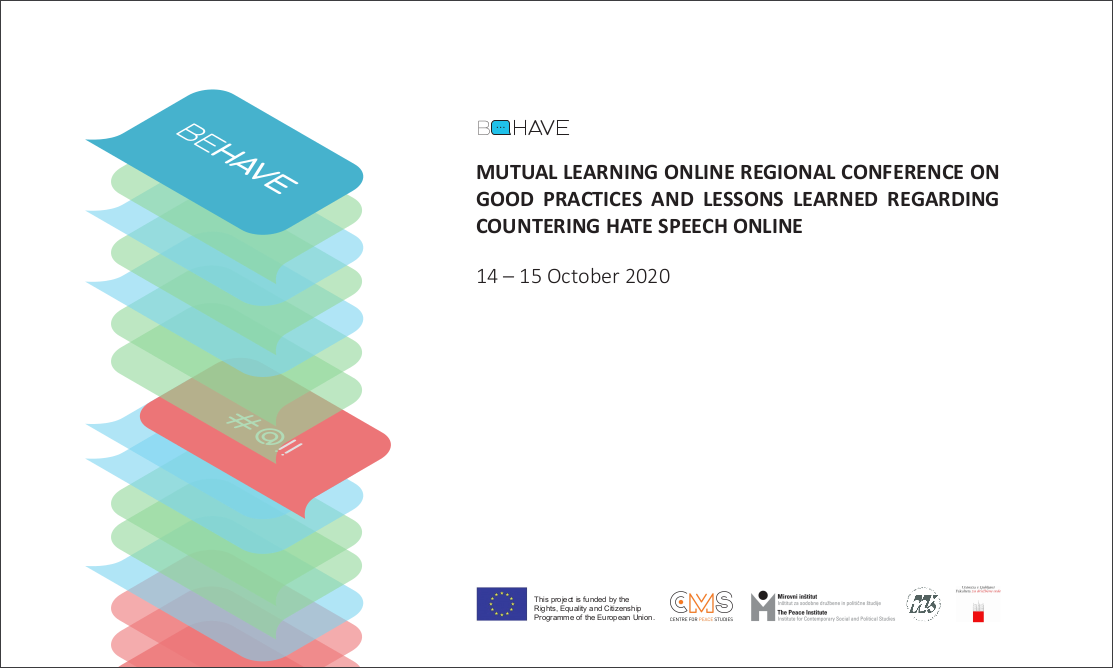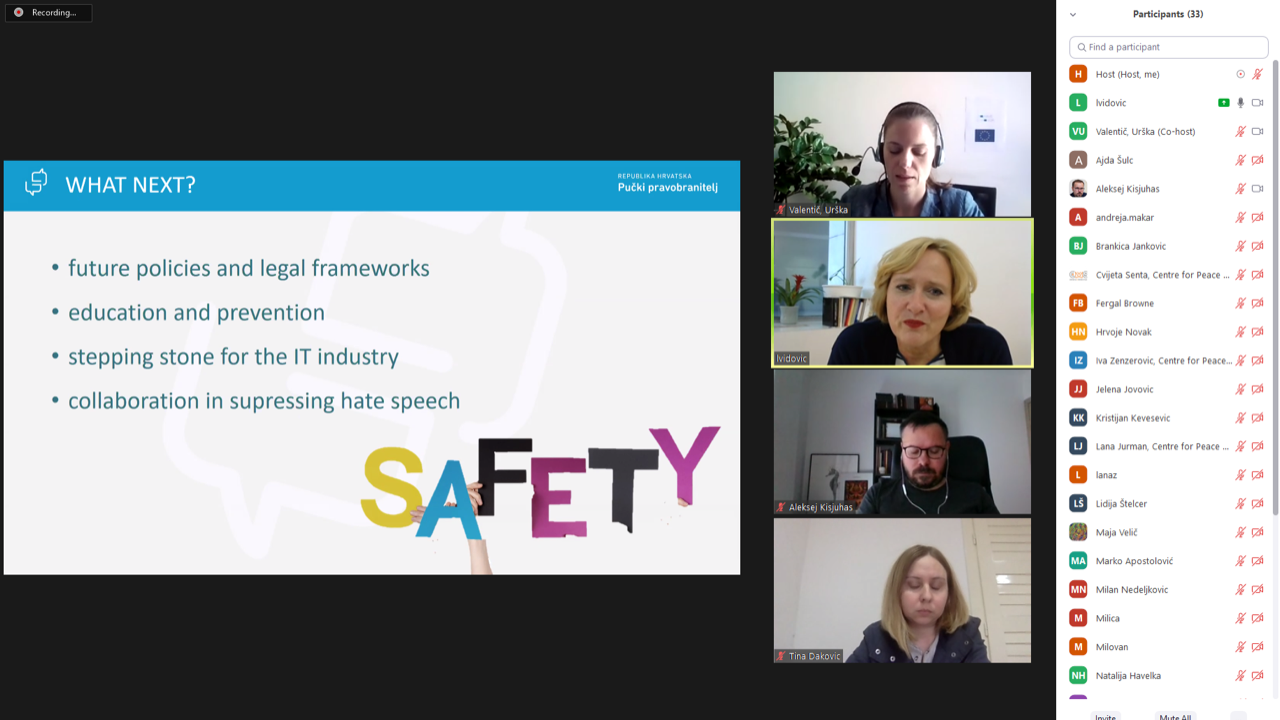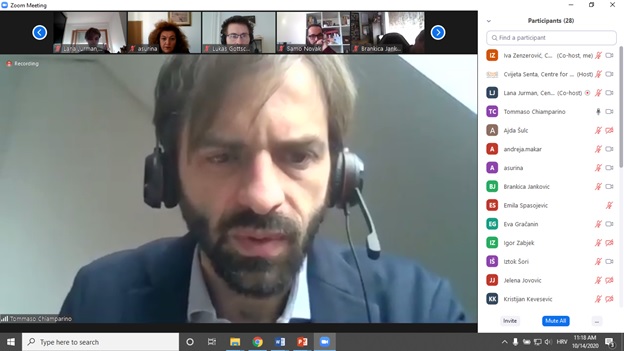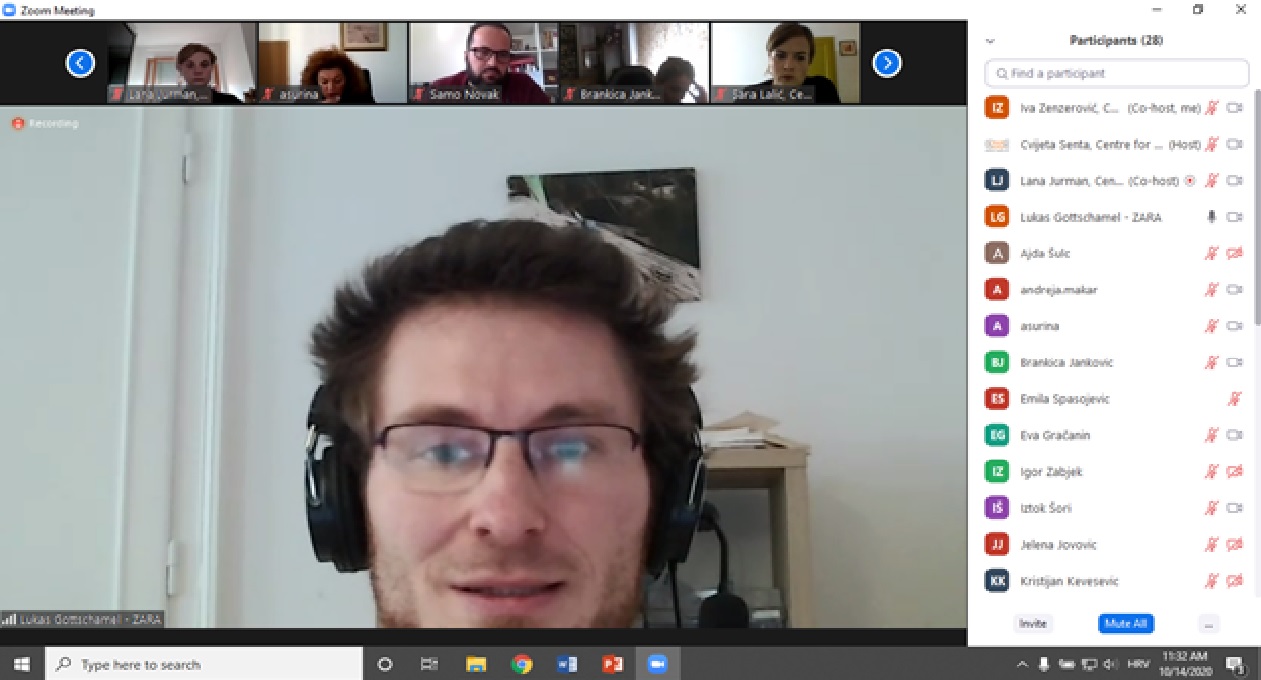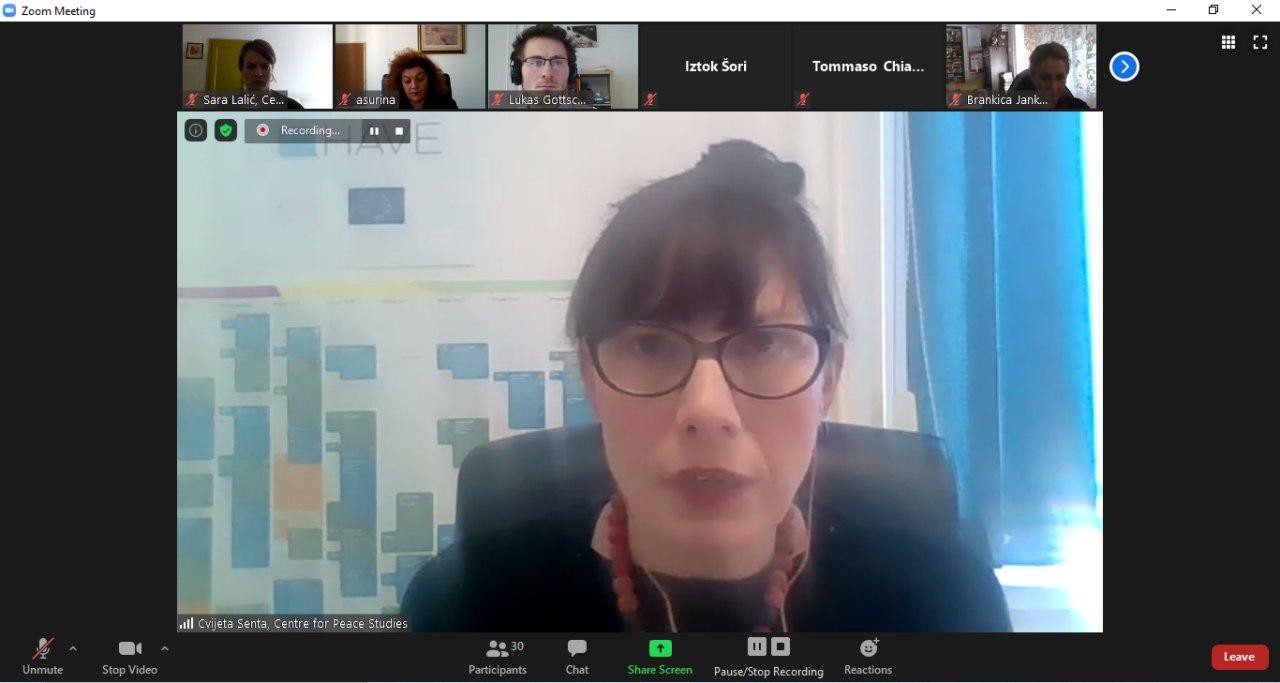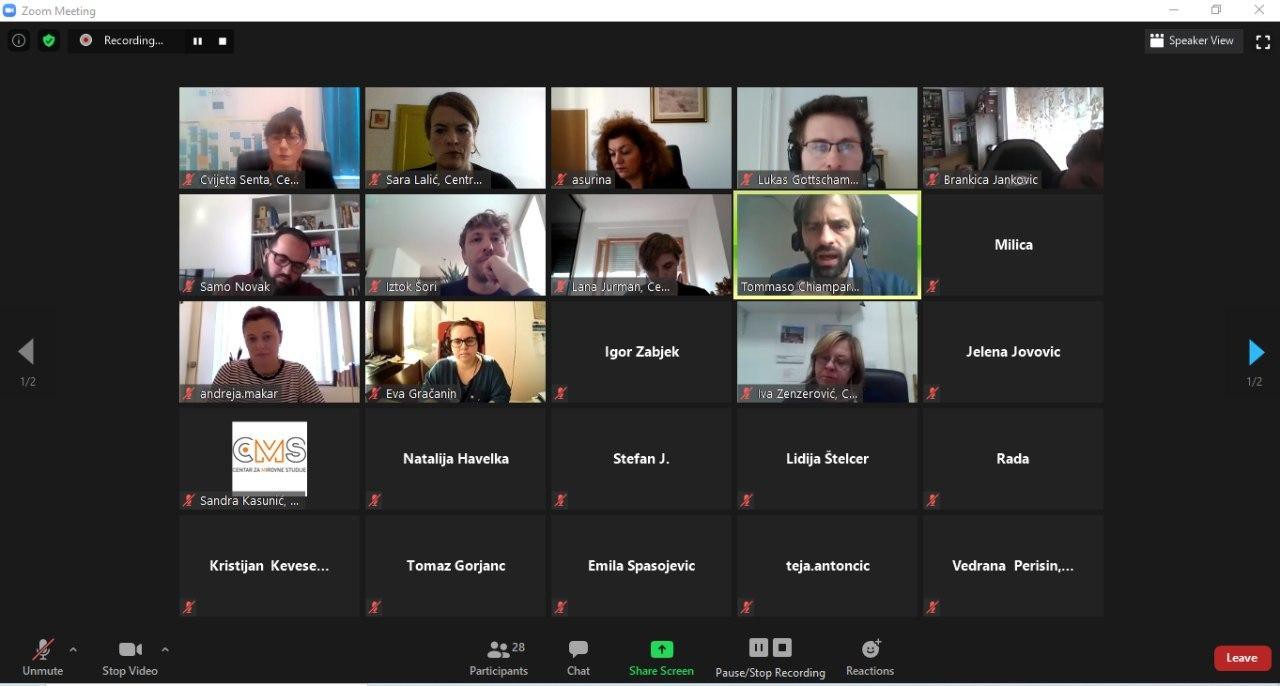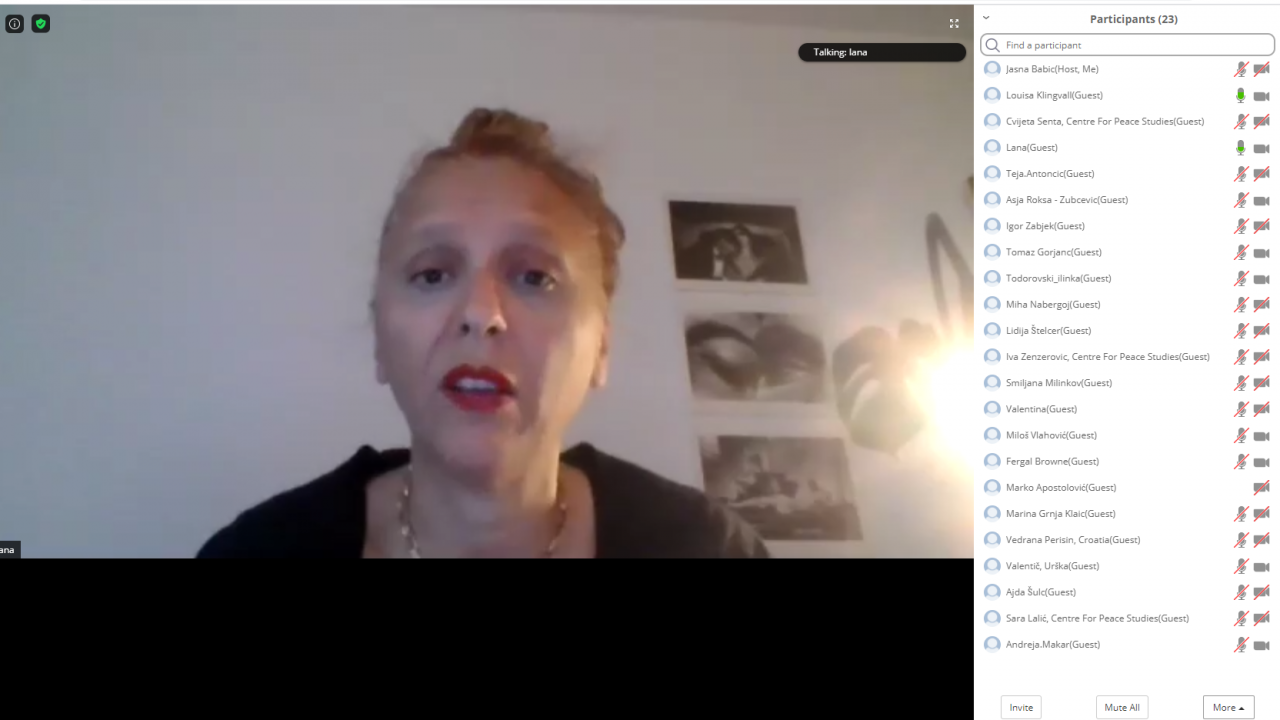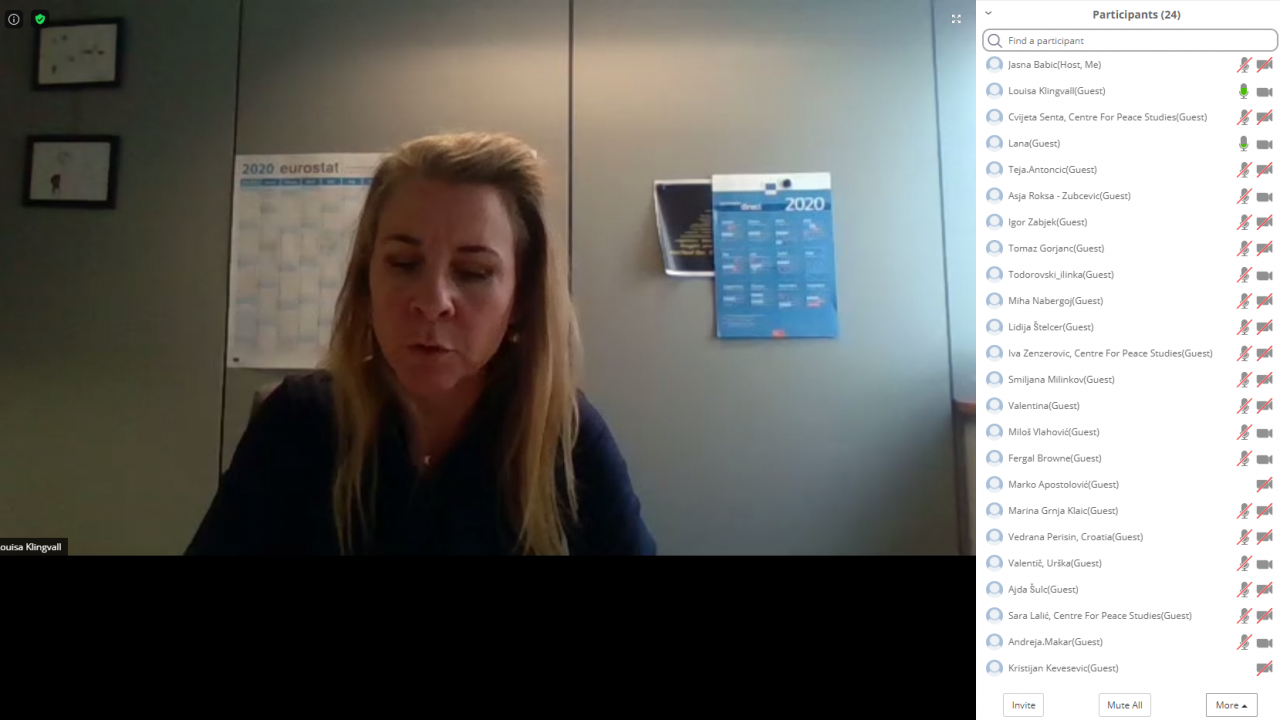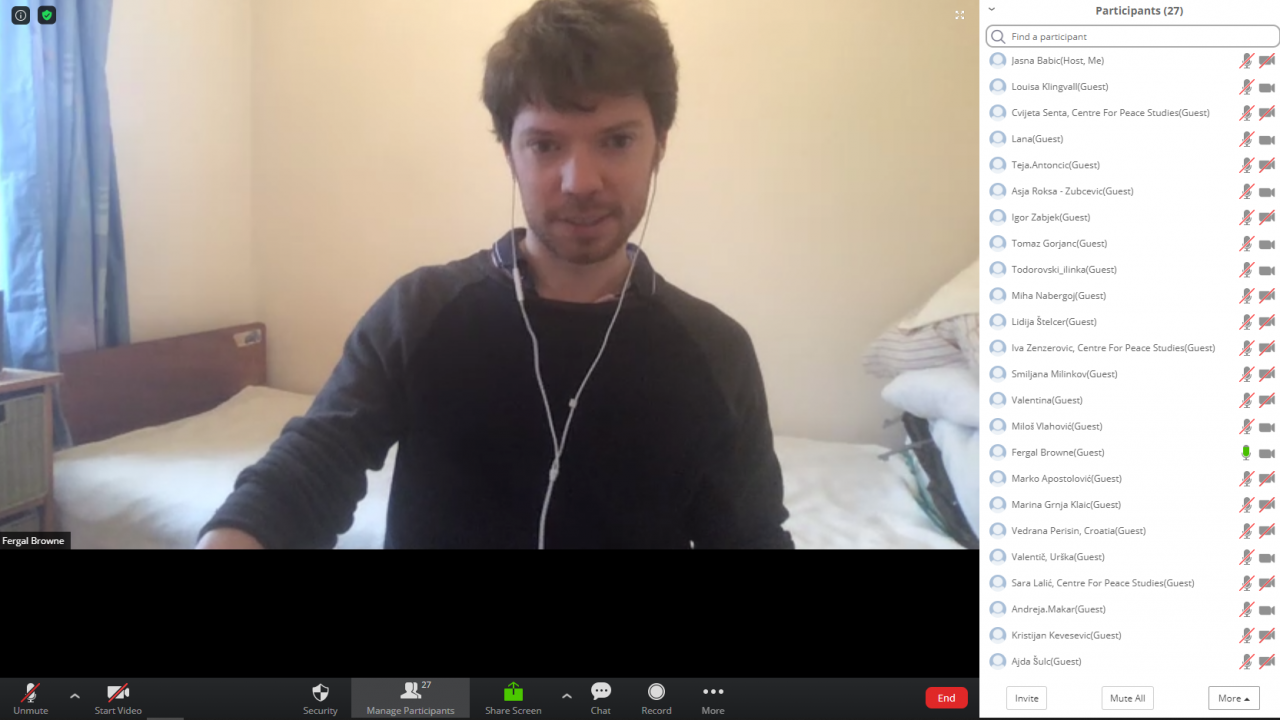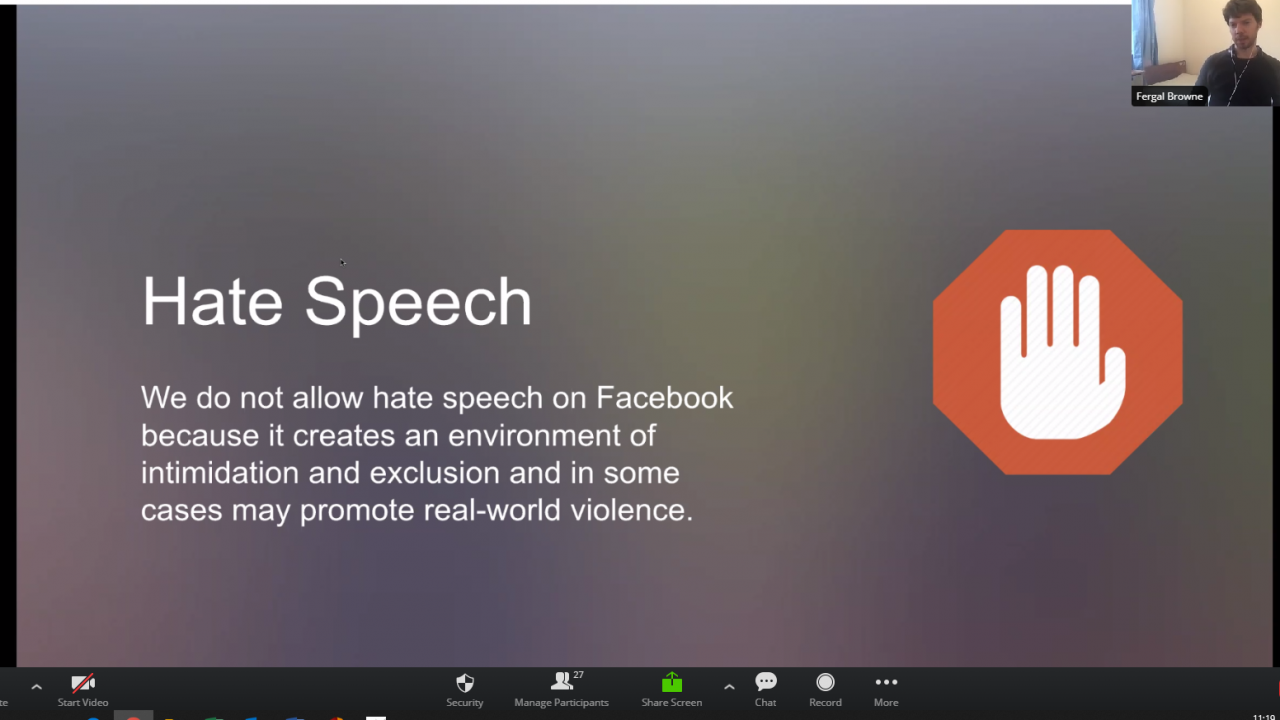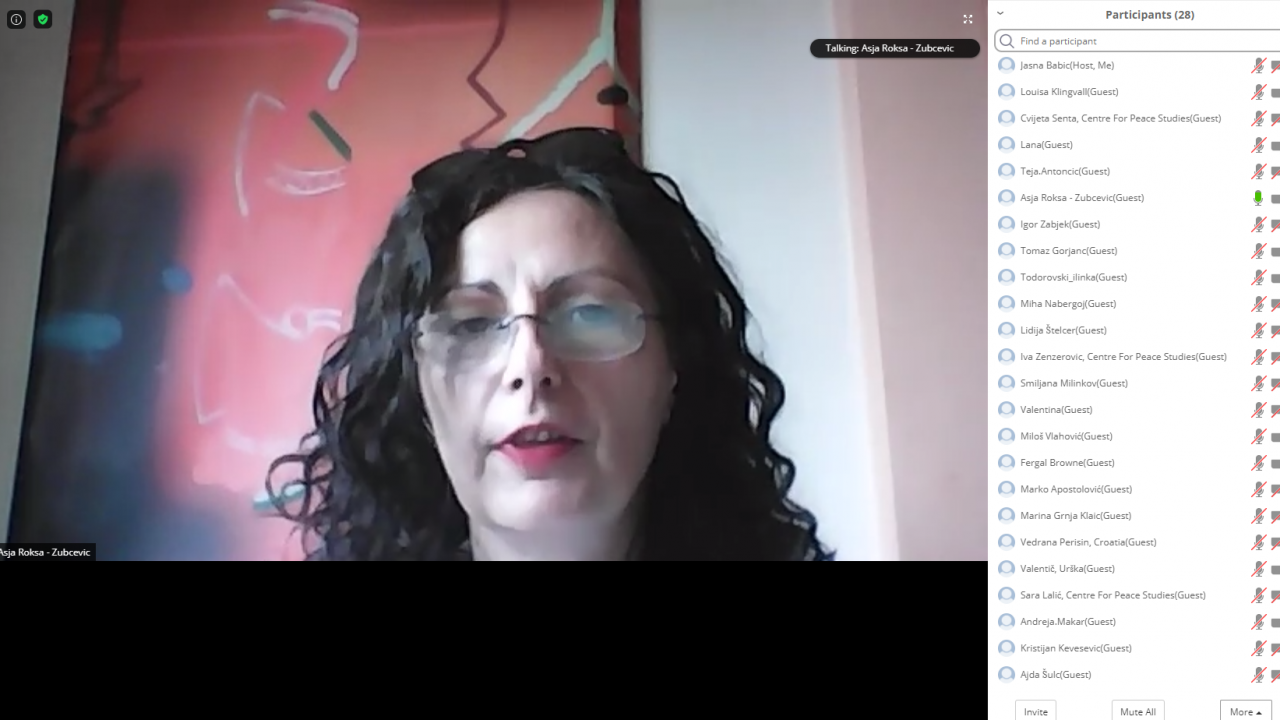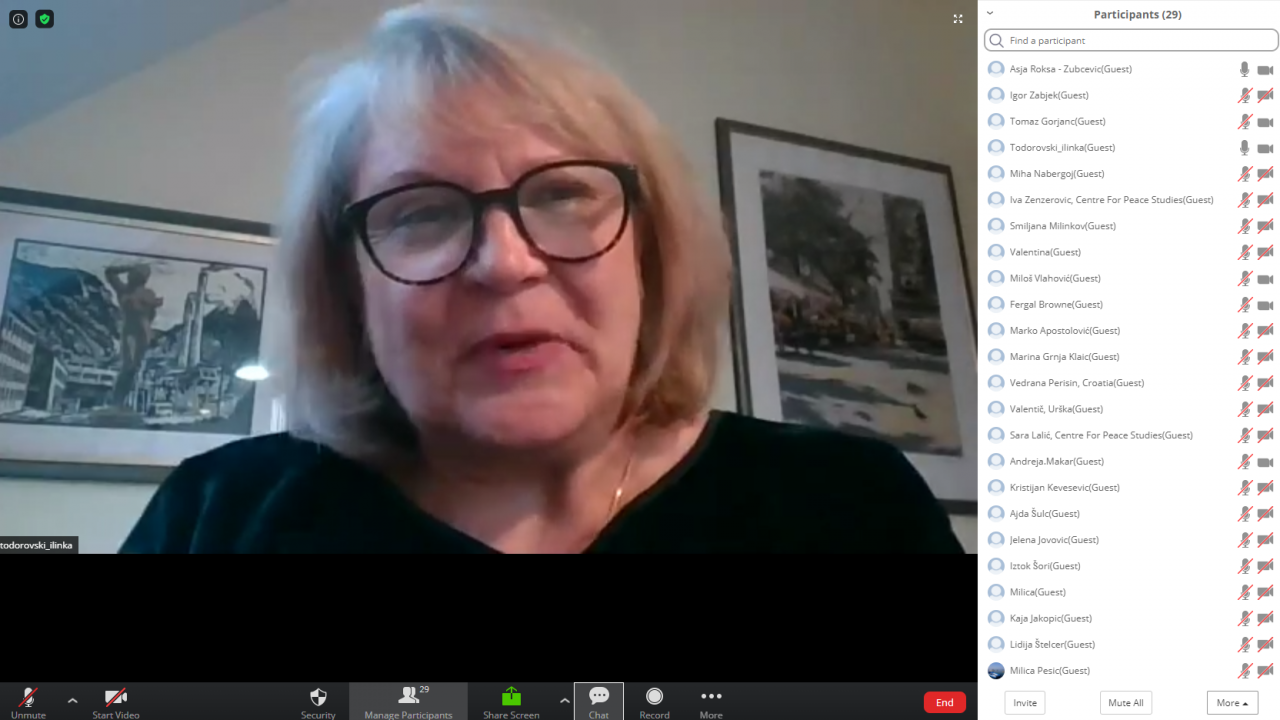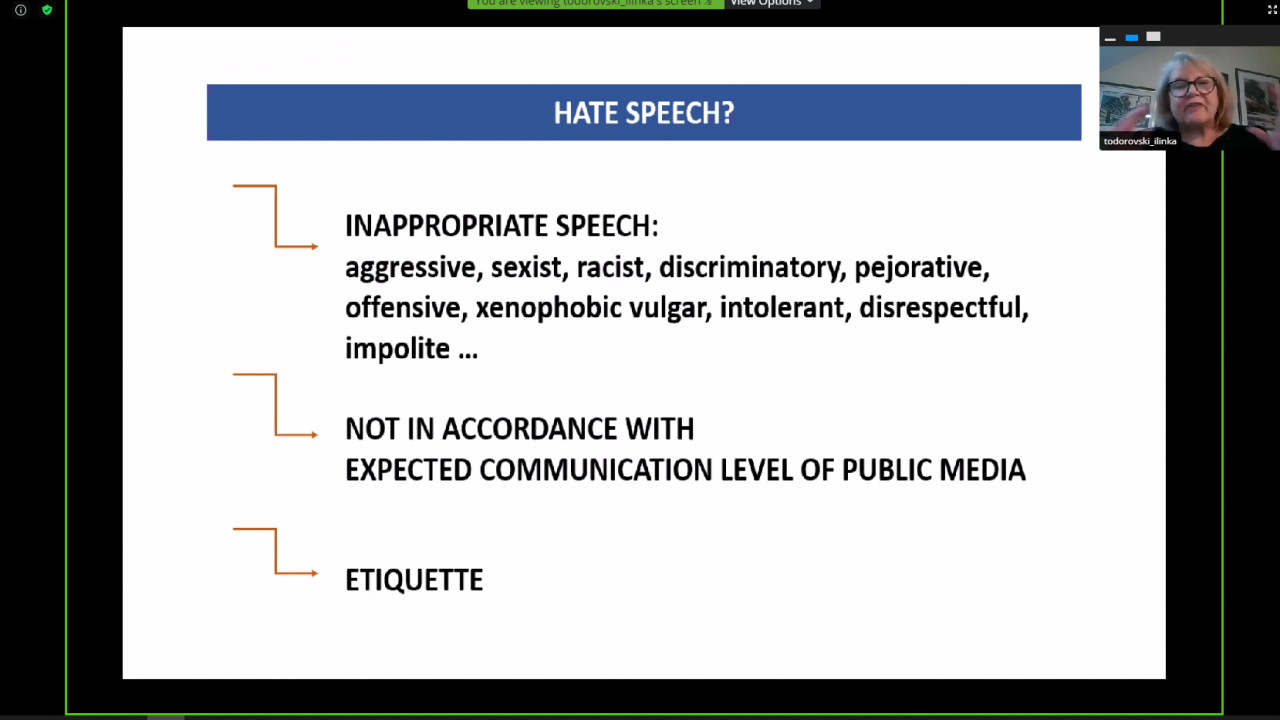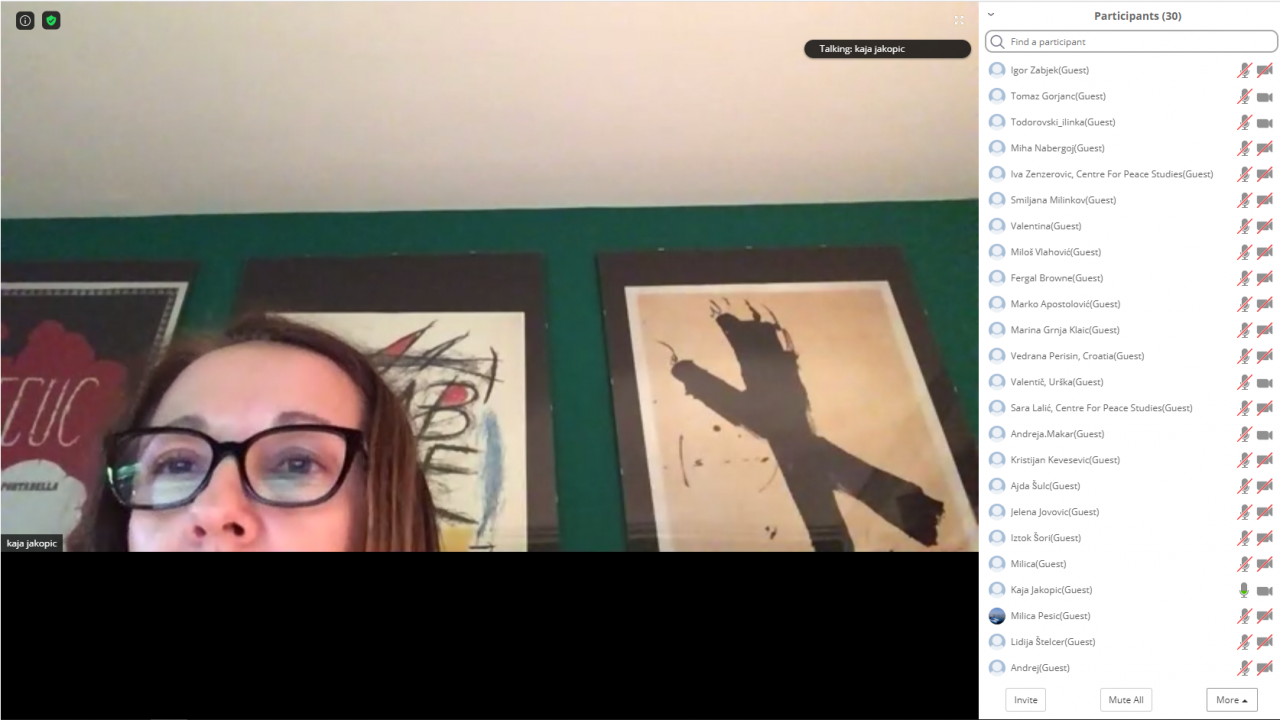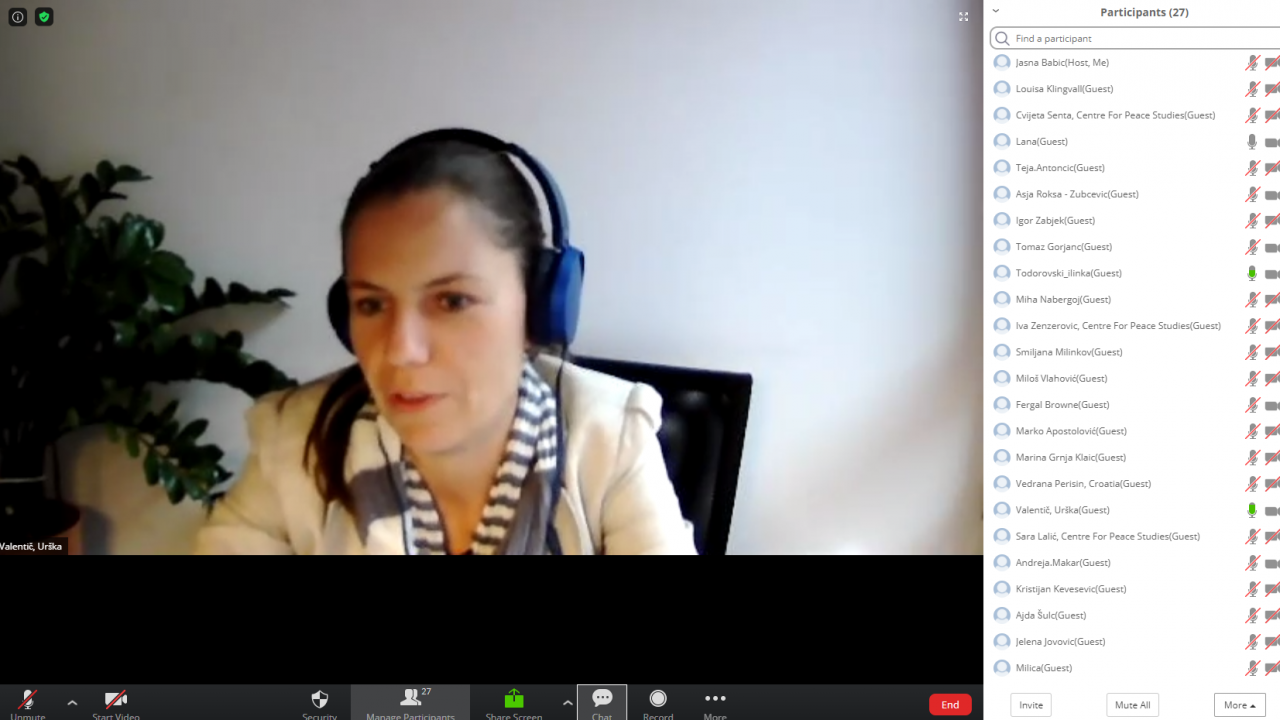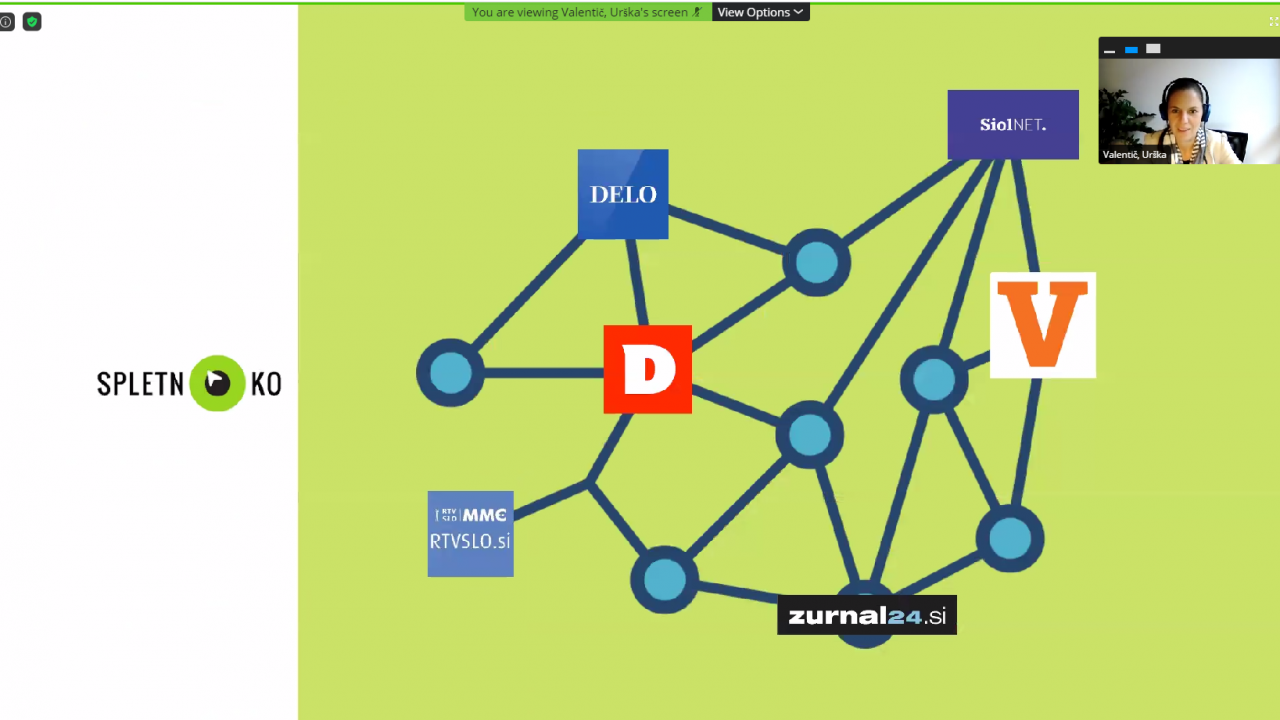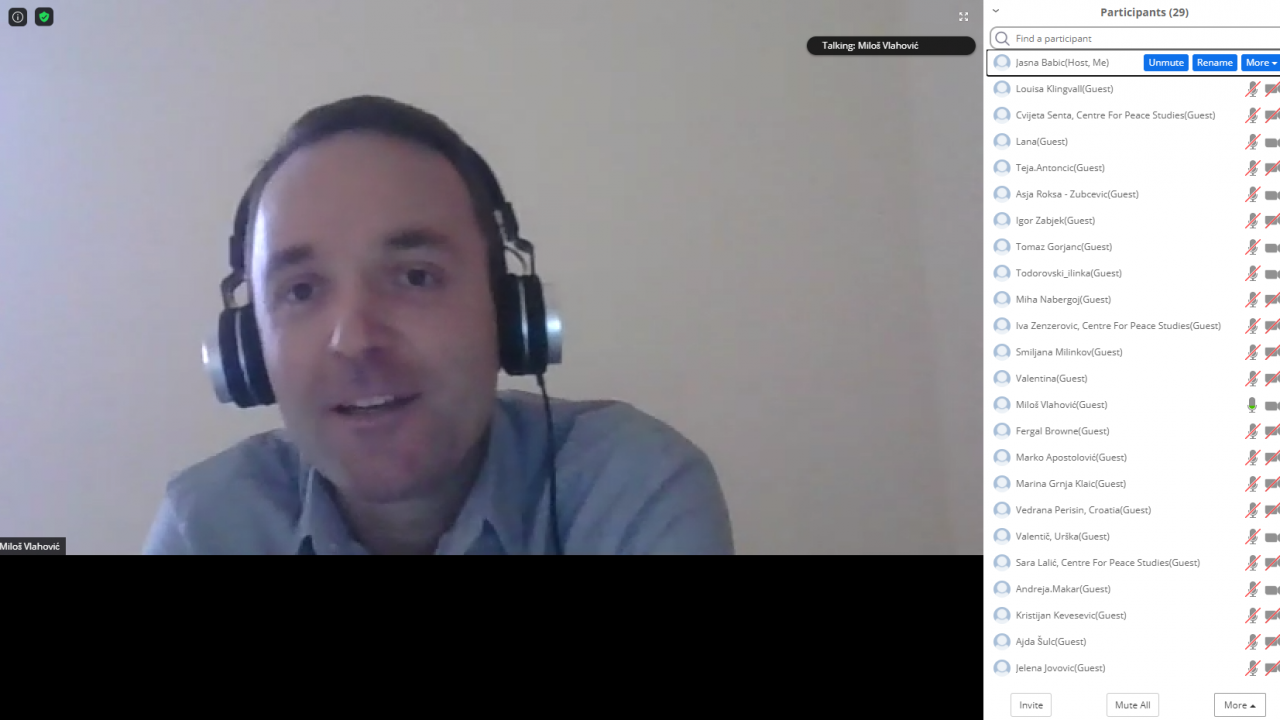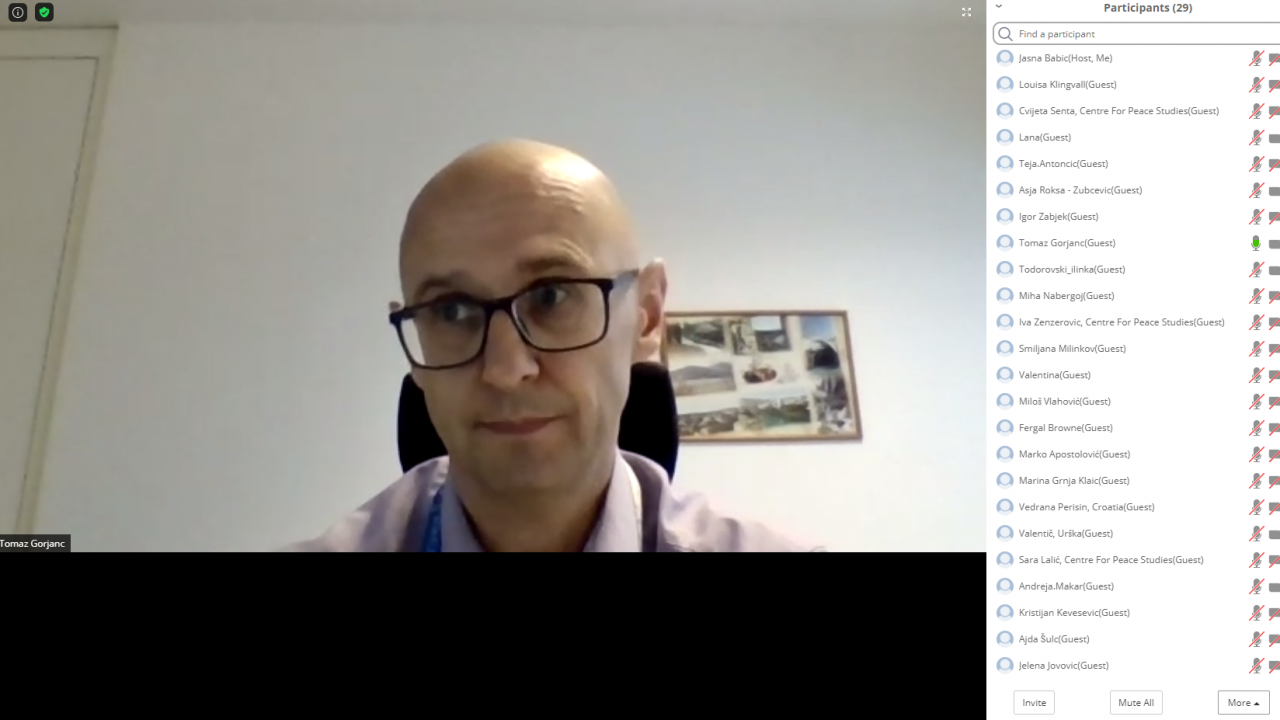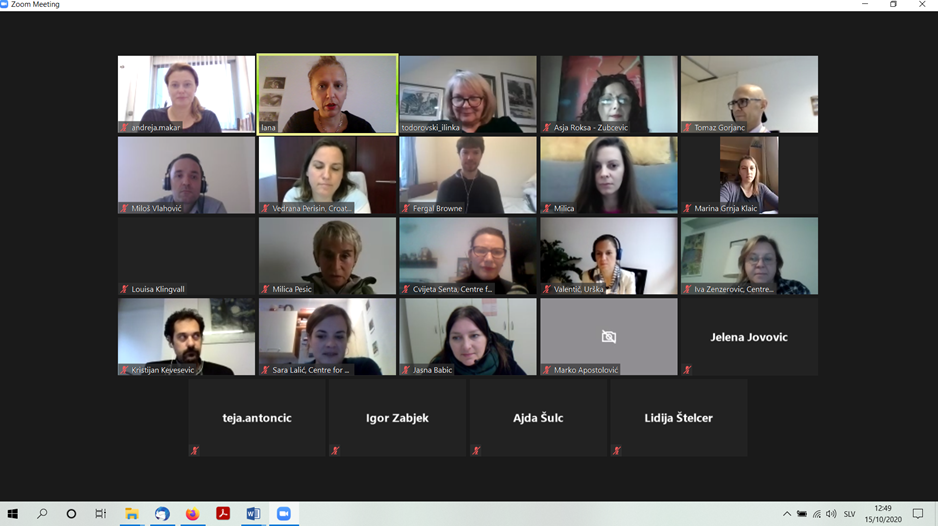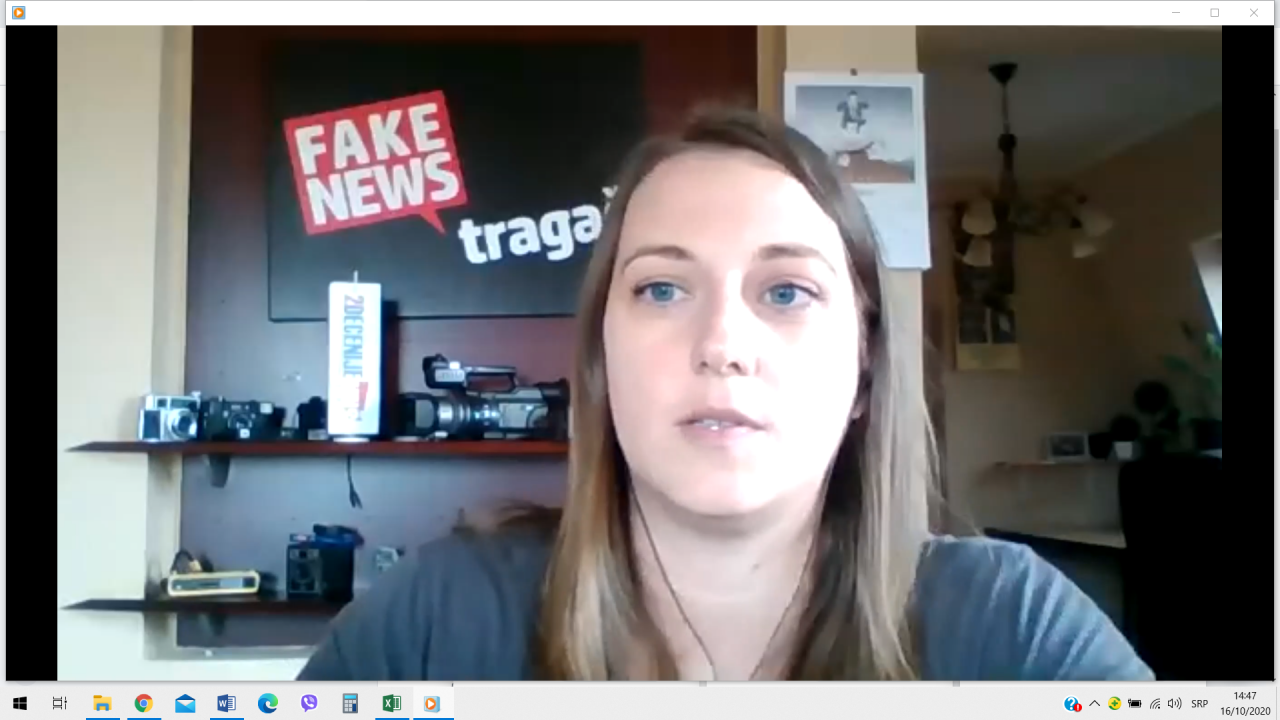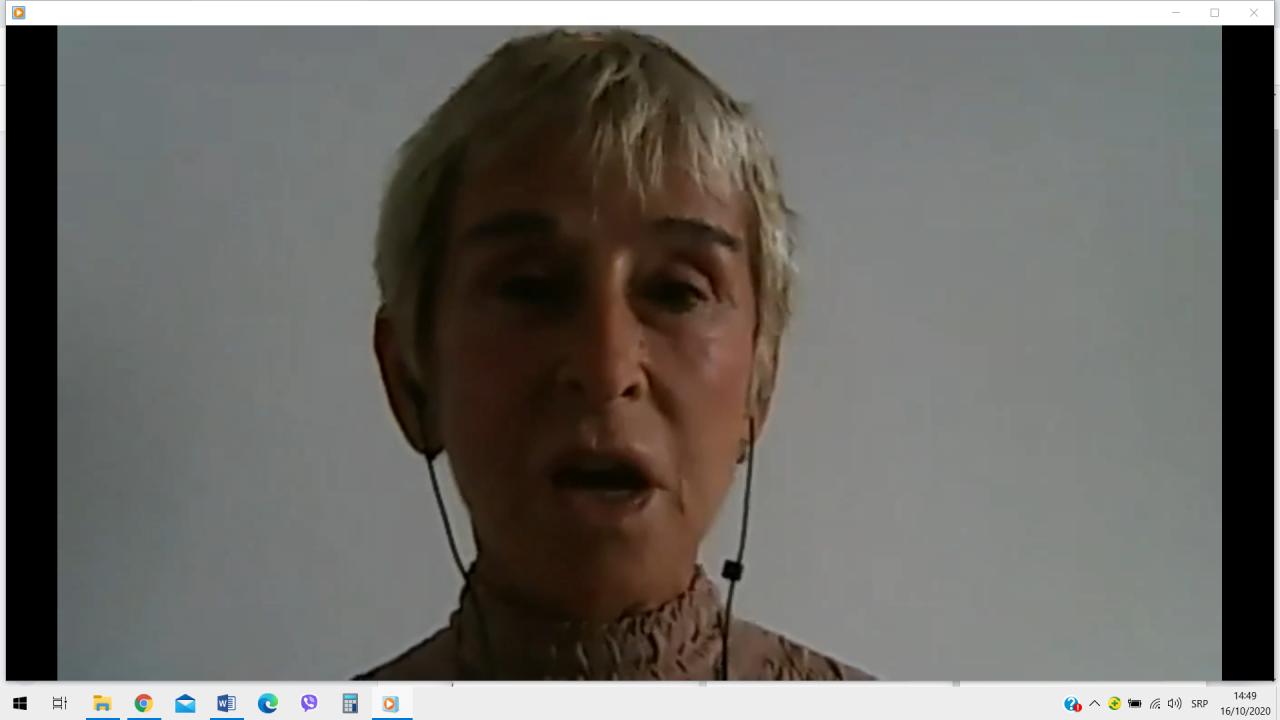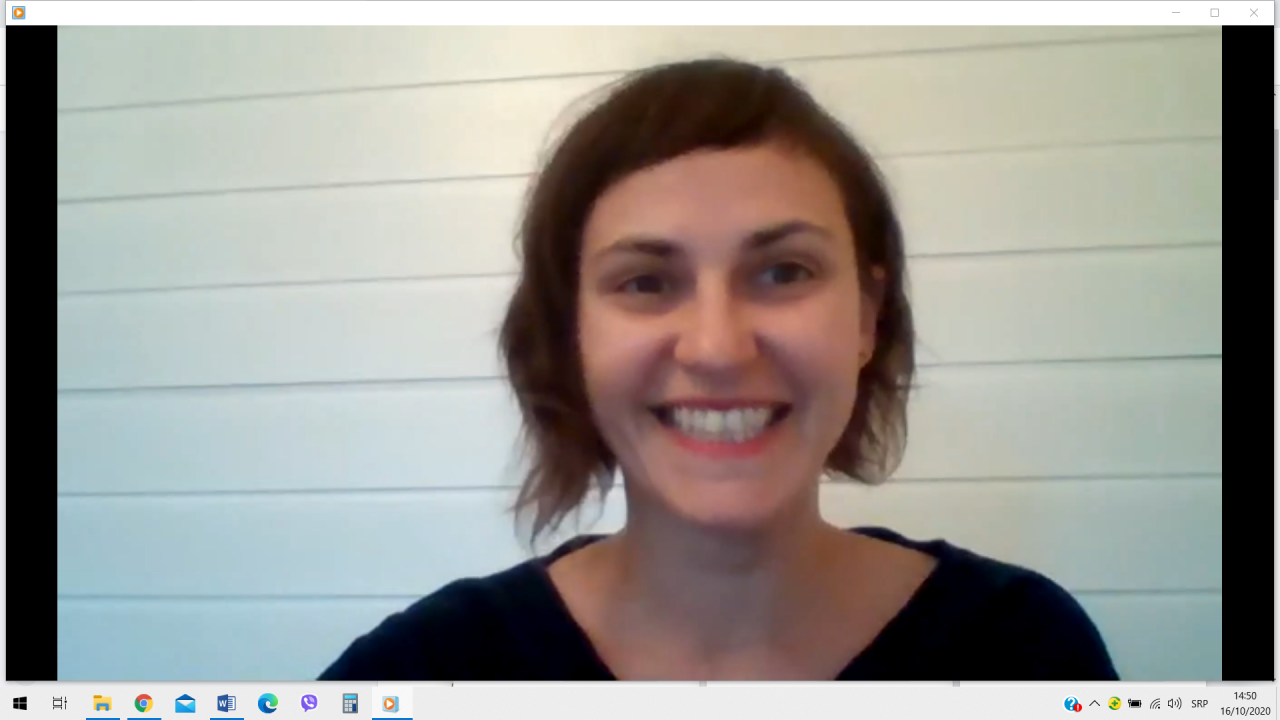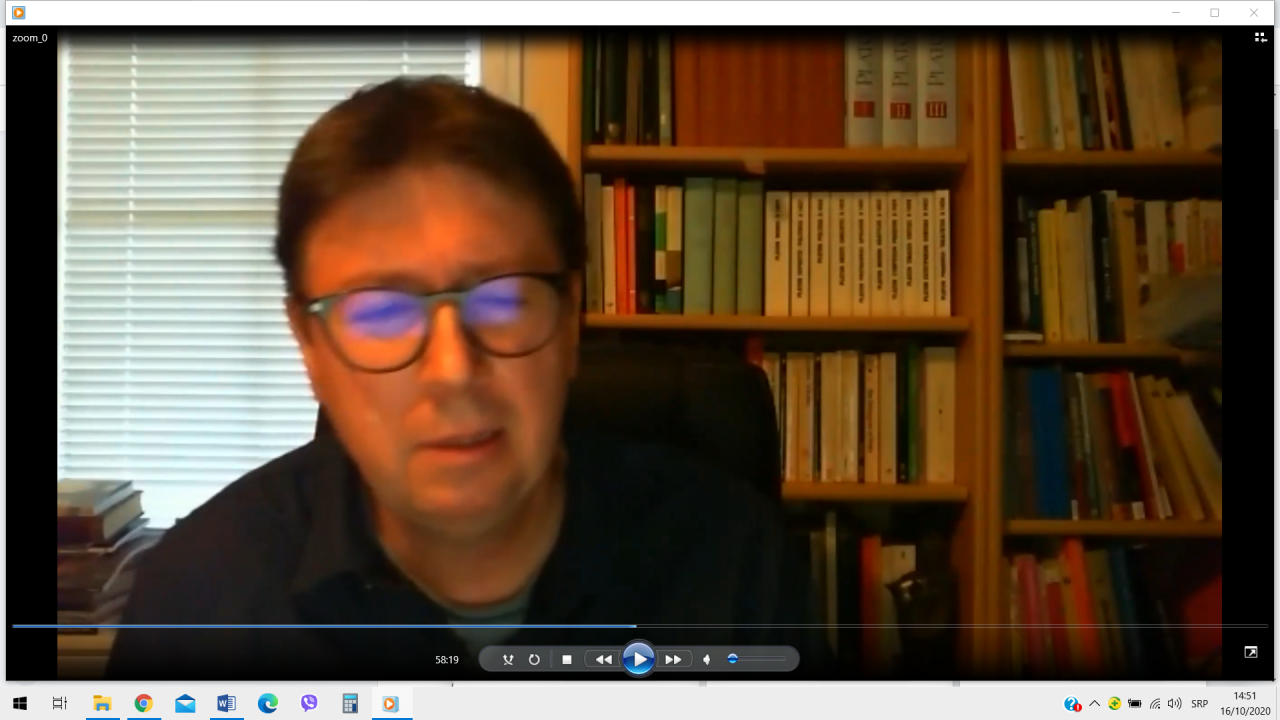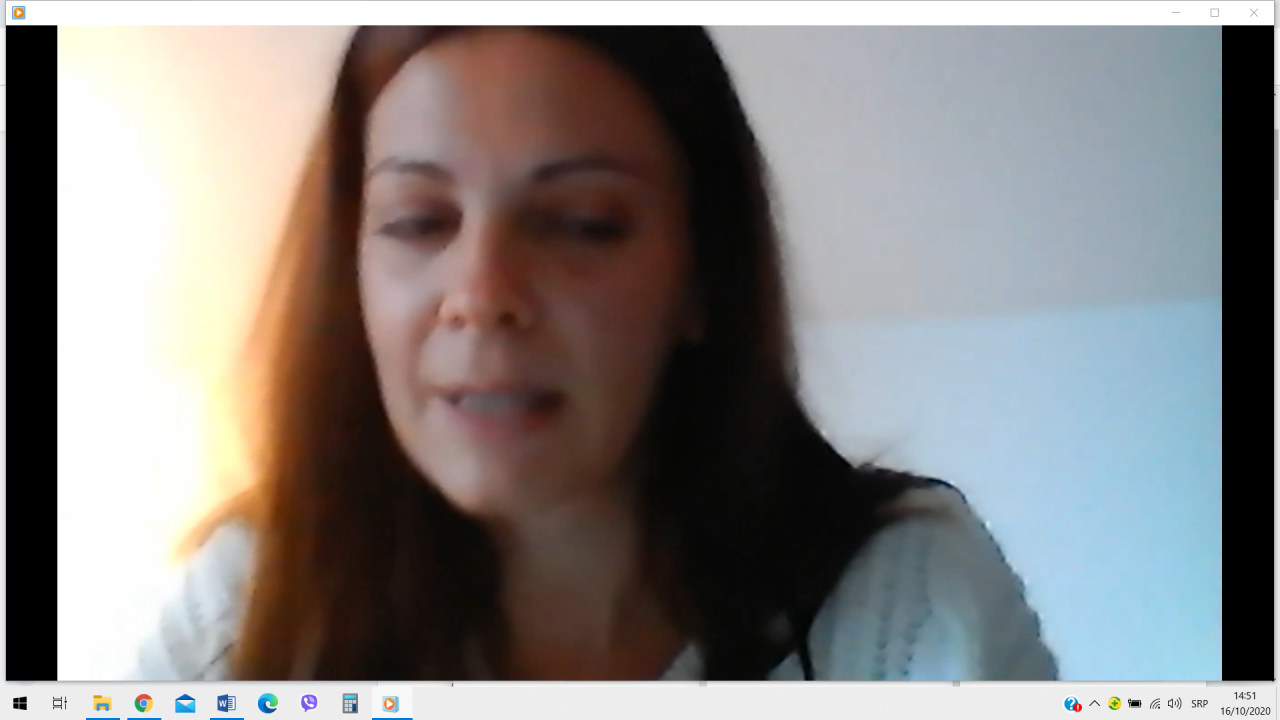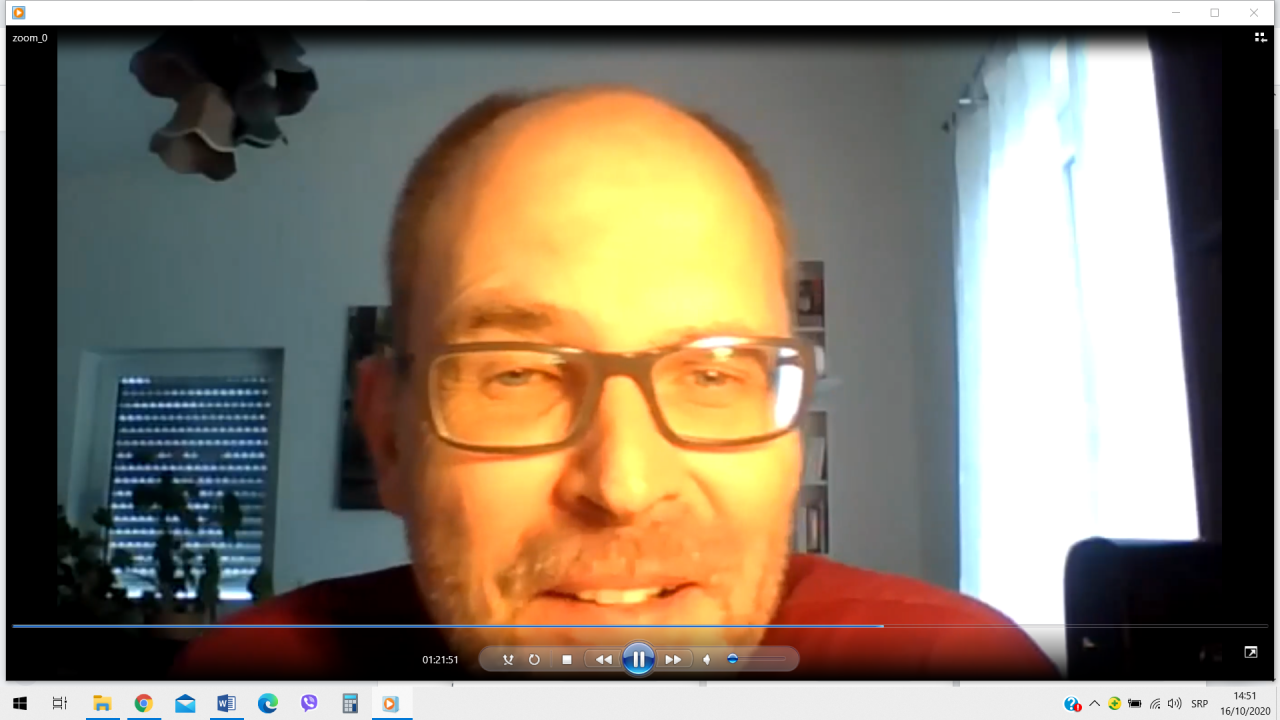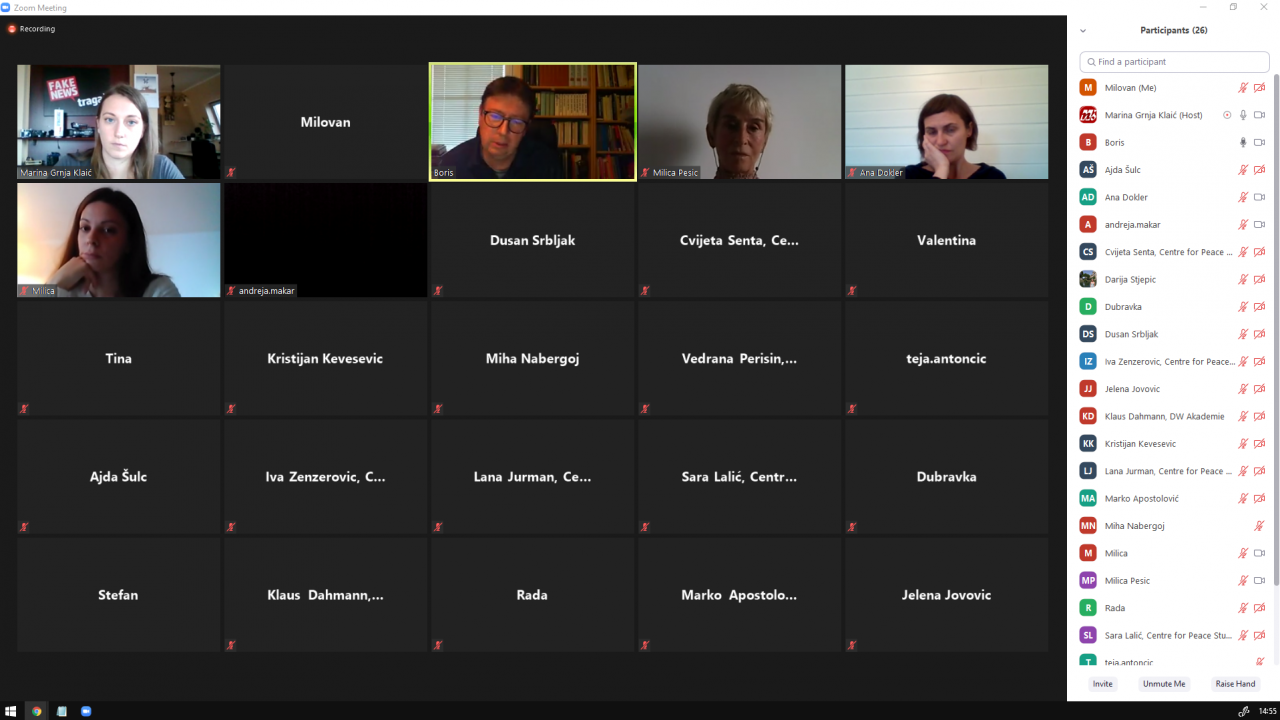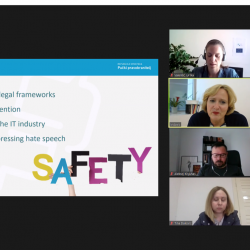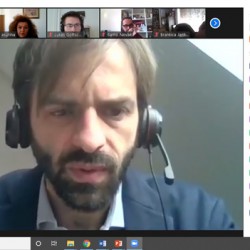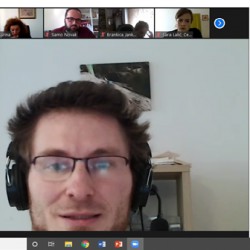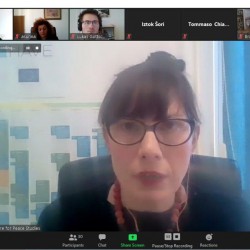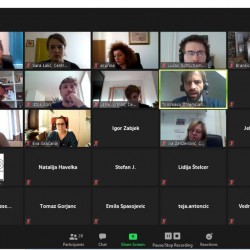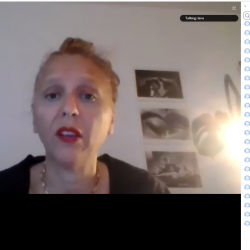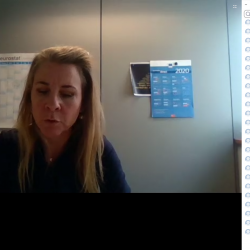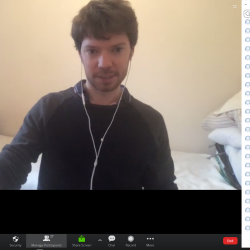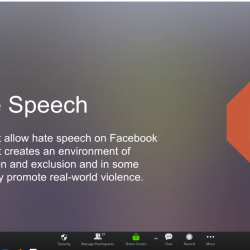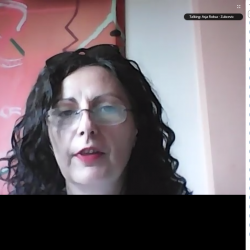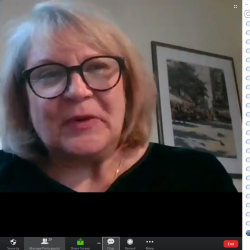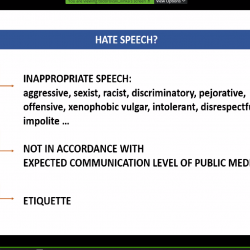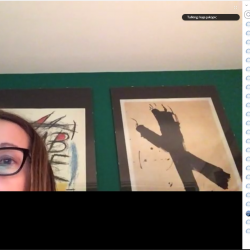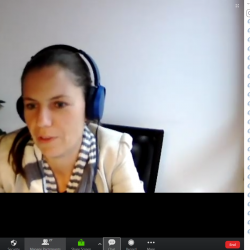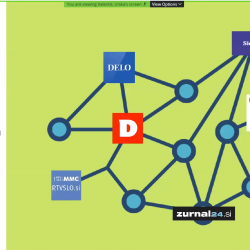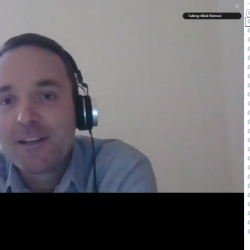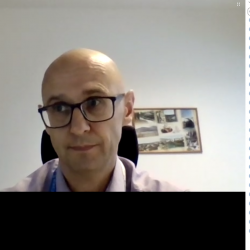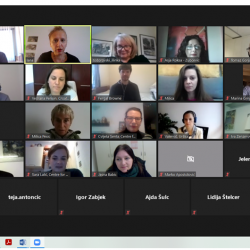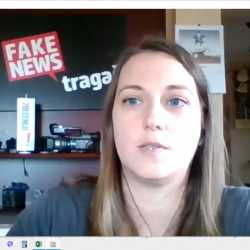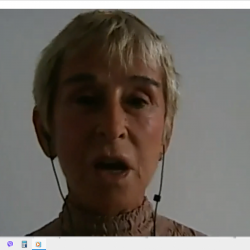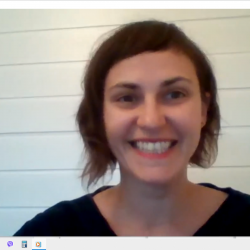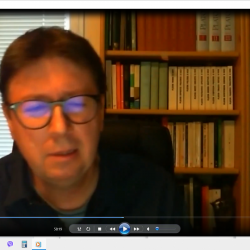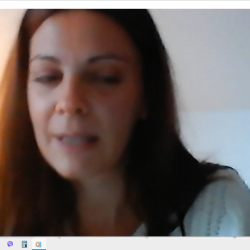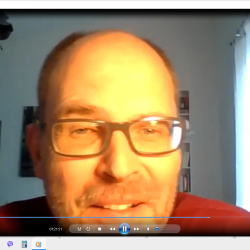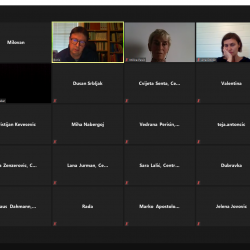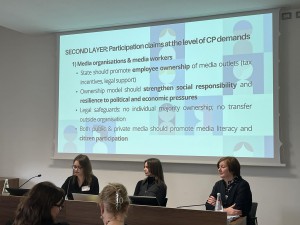Mutual learning online regional conference on good practices and lessons learned regarding countering hate speech online
16. 10. 2020 | Media
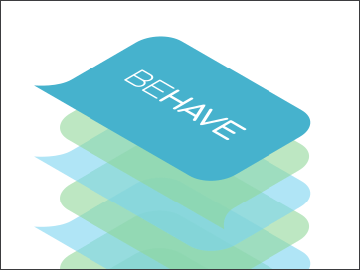
The ‘Mutual learning regional conference on good practices and lessons learned from countering hate speech online’, which was organised online between 14th and 15th October 2020, presented good practices, lessons learned and developments in combating hate speech online. It brought together experts and practitioners from Slovenia, Croatia and Serbia and also experts from other EU Member States. The aim of the conference was to contribute to the mutual learning in this important field.
Intially planned as a face-to-face conference in Ljubljana, the event was organised online in 4 separate online sessions, each hosted by one of the project partners in Slovenia, Croatia and Serbia.
On 14 October:
Session 1: Response of the state – regulation, law enforcement and countering hate speech online; cooperation between state bodies and civil society, host by Centre for Peace Studies, Zagreb, Croatia
Session 2: Monitoring and reporting hate speech online, host by the Faculty of Social Sciences, University of Ljubljana, Slovenia
On 15 October:
Session 3: Countering hate speech online: Self-regulation of media and social networks, and the role of media regulatory authorities, host by Peace Institute, Ljubljana, Slovenia
Session 4: Education and public awareness, arts and culture, and citizens actions, host by Novi Sad School of Journalism, Novi Sad, Serbia.
The conference was organized within the project BEHAVE – SEE Beyond Hate: Learning and Acting to Counter Hate Speech Online in South East Europe in partnership of Peace Institute Ljubljana, Faculty of Social Sciences – University of Ljubljana, Centre for Peace Studies, Croatia and Novi Sad School of Journalism, Serbia. In Slovenian, Croatian and Serbian language the project title is (Od)govor.
The project is aimed at identifying good practices and supporting mutual learning on countering hate speech online between state and non-state actors in the three countries; understanding hate speech online, strengthening critical thinking and responding to dominant hate narratives in new media forms addressing particularly young users; and raising competencies of secondary school teachers for working with students in addressing hate speech online.
The project is funded by the European Union within the Rights, Equality and Citizenship Programme of the European Union.

